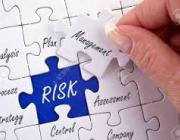
Martha Ducharme
MBA, CPCU, ARM, AIM, AIC, AIS, AIT, AIDA
August 19, 2020
Risk Management, Not for the Faint of Heart
Risk management is the name of the game. We all feel we have control of our life, our work, etc. If something changes in our schedules, we will just find an alternative, some work around to fix the bump in the road. I bet this sounds familiar; I have heard a lot of similar statements over the years.
Risk Management Defined
Merriam-Webster’s Dictionary defines risk as the possibility of loss or injury and management as conducting or supervising of something.[i] Sounds simple doesn’t it. Just supervise your way through a loss or injury. Clearly, when I state the two together the challenge becomes more evident…and it is not always simple.
With the pandemic many have experienced change, many have experienced significant change. Work schedules, commuting, healthcare, school, childcare, grocery shopping; the list goes on and on. Managing these changes is not simple.
Knowledge of Risk
At this point in time I am grateful for many things, such as my health and employment. People might shun you or walk the other way when you let them know you work in insurance. The insurance industry is viewed as boring or sometimes as that evil necessity in life. Both interpretations could not be more wrong! Another element I am grateful for is my work experience within the insurance industry. If nothing else, I feel like I have trained well for this risk and our employers, for the most part, were ready.
I will acknowledge that hindsight is 20/20, but there are many businesses out there that did not plan well…or did not plan at all, for risk of loss or interruption of their business by a big event. After 9/11 there was a lot said on disaster planning and I am forever reminded of the billboards and other forms of advertising from FEMA on this topic.[ii]
The insurance industry is built around risk of loss. If there were no plans this world would be even more chaotic. Numerous models have been made to try to determine when the next big weather event will occur or how many small events will run concurrently making the insurance market even more challenging. If only other parts of the business economy had put some effort in, perhaps the frustration of many would be averted.
This pandemic presents many challenges, but the honest view is that many did not put much (if any) effort into trying to plan for this big of a road bump. It is not about avoiding the risk but being able to successfully navigate and survive at the conclusion of the event.
Real World Highlights
As an example, look at remote employment. Everyone gets to work from home, and someone will set each person up for work…wrong. Some will be able to be remote while some will need to maintain crucial infrastructure. Also, you must be a part of the process in the plan to get yourself up and running for work within your own environment. Then you need to complete your own risk management plan. What if the power goes out? What if your computer is not connecting? What if you cannot figure out Zoom? These are question the employee needs to prepare a response to, not just the employer.
Think of some of the success points, like small restaurant owners. There are many stories of restaurant owners immediate shift to maintain some level of business operation. No indoor dining, then let’s focus on take out or add delivery service. Need to maintain some level of work for all employees, let’s expand into grocery delivery service. They took what they owned and pivoted into a growth area. It is supply and demand and knowing your market.
Conclusion
One thing I do know, is that a plan can be established to manage for risk and ensure we make it to the other side. It may not be an easy navigation but everything after the initial event will seem small in comparison. There are alternatives, and for the strong at heart they find a window of opportunity.
As an industry, we have a lot to offer to develop the best risk management models. Perhaps another organization will acknowledge and seek out our market skill sets to prevent their next big loss. Until then, you could try your hand at planning from these basic steps easily found on the Project Manager website:[iii]
- Identify Risk
- Map Out Impact Versus Likelihood
- Plan Your Risk Response
- Assign an Owner to the Risk
- Understand Your Triggers
- Make a Backup Plan
- Measure Your Risk Threshold
And of course, treat this like a cycle. Monitor, review and reassess regularly. Things change and so should the risk management plan over time. Be prepared for next time…yes there will be a next time, this is not our first pandemic!
Works Cited
[i] Merriam-Webster Dictionary, https://www.merriam-webster.com/dictionary/management. (accessed August 19, 2020).
[ii] Federal Emergency Management Agency website, https://www.fema.gov/emergency-managers/national-preparedness/plan. (accessed August 19, 2020).
[iii] Project Management website, https://www.projectmanager.com/blog/risk-management-plan. (accessed August 19, 2020).